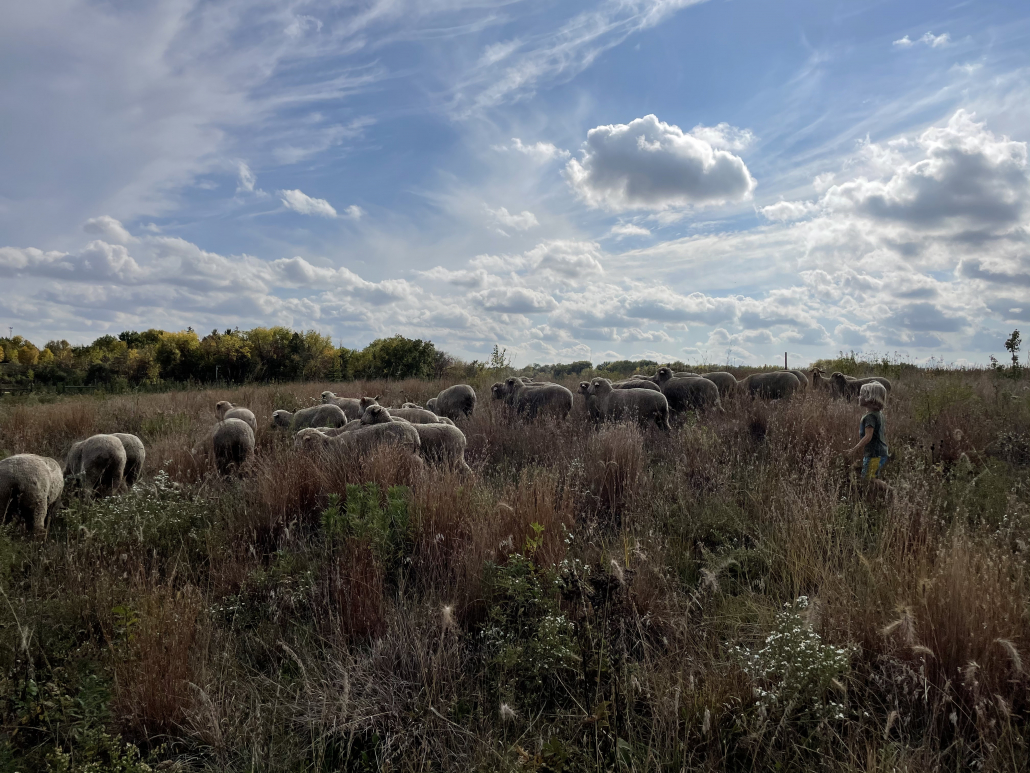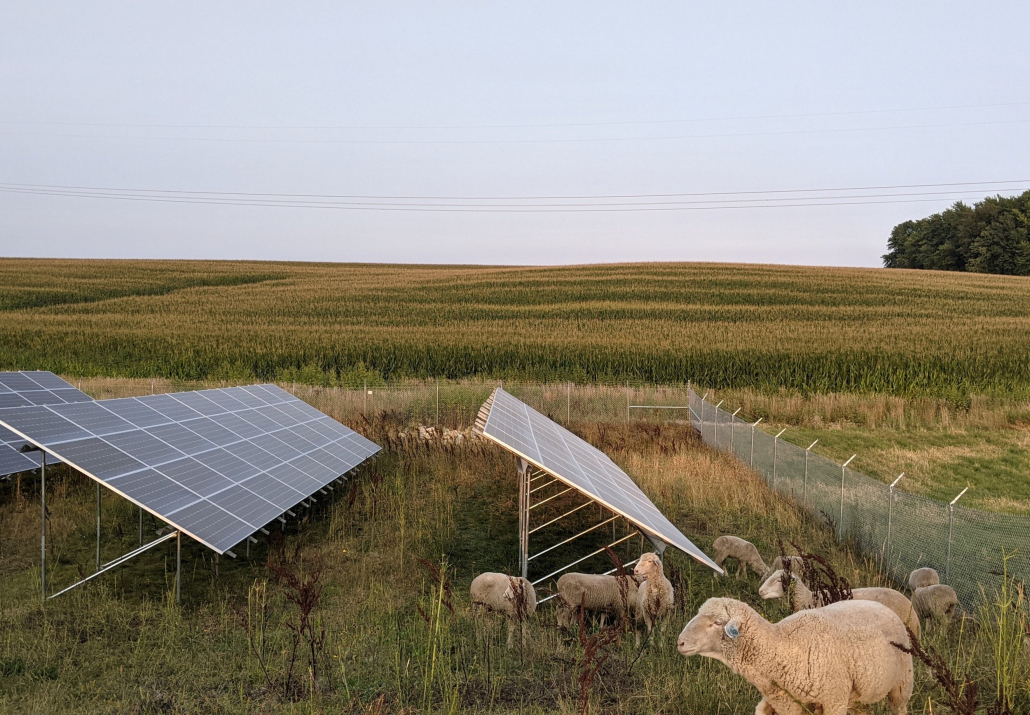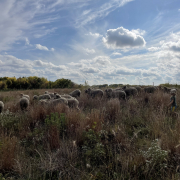Case Study: Cannon Valley Graziers
Cannon Valley Graziers is a vegetation-management company based in Southeastern Minnesota. Since 2018, Arlo Hark and Josephine Trople have been using their flock of sheep to manage vegetation in a variety of environments, working closely with customers to meet their management goals. Cannon Valley Graziers provides vegetation-management services for solar developers throughout southern Minnesota. The vegetation on community and utility solar sites is traditionally mowed multiple times per year, incurring high operations/maintenance costs. By applying adaptive-grazing strategies on these solar sites, Cannon Valley Graziers can reduce the annual maintenance costs for developers, while also having a positive impact on the soil health and water quality of southern Minnesota.

The principles of adaptive grazing are well-suited for vegetation management. By mob grazing—introducing a large number of sheep into a small area for a short amount of time—Hark is able to deploy his flock with surgical precision to meet the needs of each site. After the desired objectives are met, he moves the flock to the next site. Meanwhile, the vegetation is allowed to recover, strengthen its root systems, and grow more resilient. Hark says these root systems are key for soil regeneration and water quality. Deeper roots build organic matter and allow for the transfer of minerals deeper into the soil. Strong root systems also improve the soil’s ability to store and maintain water, which reduces soil erosion and chemical runoff into nearby waterways.

Growing a sheep-powered vegetation-management company is not without challenges. Large flocks require large trucks and trailers to move from site to site. In addition, most sites do not have water, so water must be supplied by the grazier. But to Hark, the effort is worth it. “It makes sense to stack benefits on these sites,” he explains. “We are providing a top-notch service to our customers, improving soil and water quality, and providing meat and fiber to our community. It just makes sense.”



